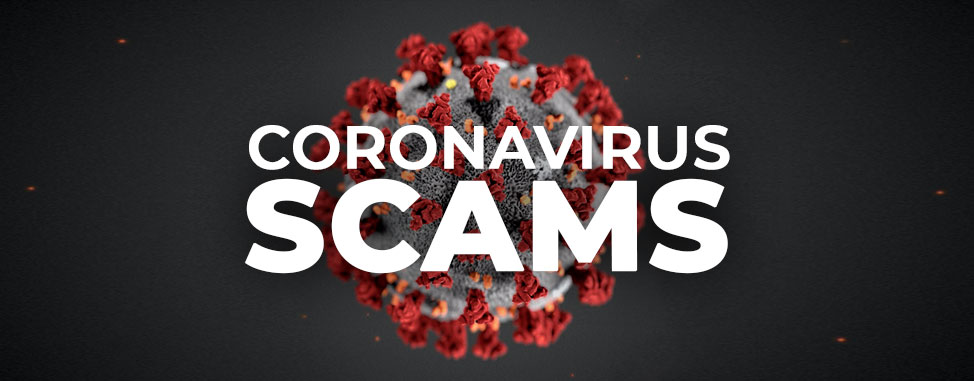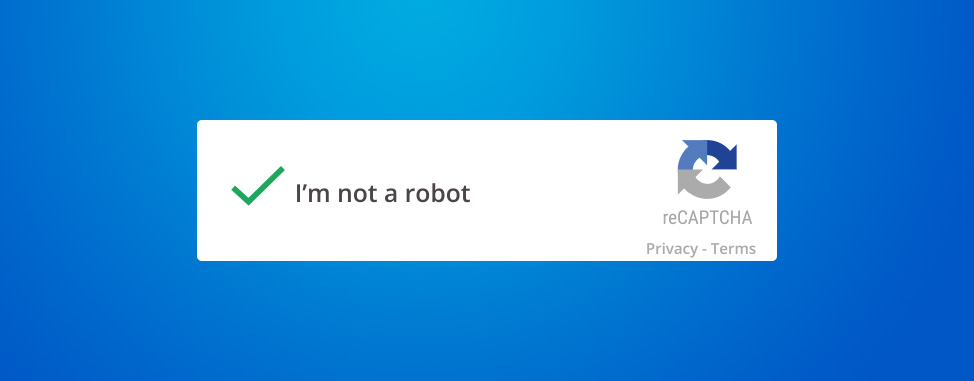
Beware of Coronavirus Scams!
The Coronavirus is not the only pandemic raging across the globe. Fear and greed, referred to by legendary investor Warren Buffett as “super contagious diseases”, are both running rampant as well.
You’ve probably already seen the results of fear: fake news posted across social media, and folks making wild assumptions about the cause or eventual outcome of the contagion. But greed, the more sinister of the two ailments, has snaked its scaly coils into the homes of many people via phishing and malware attempts.
In this article, we’ll review some of the most recent scams targeting Canadians, as well as strategies you should be using to help keep yourself safe online.

What is Phishing?
Phishing attacks are most often attempted through email, but they can be executed using any form of electronic communication. Typically, perpetrators will contact you pretending to represent an authority or service provider you know and trust. They accomplish this by spoofing email addresses and phone numbers, which unfortunately does not require more than basic technical knowledge.
Phishing attacks are attempts to gain personal information which may be used to access your accounts or finances. A common example is a fake email which seems to come from a company you know and trust. The email contains a link to a fake version of the company’s website, where your information can be easily stolen and filed away.

What is Malware?
Malware is a catch-all term for software designed to harm a computer or any of its working parts. Malware can be delivered to your computer in a variety of ways, but is often embedded in a file or folder which you download intentionally.

Reported Coronavirus Related Attacks
Fake Coronavirus Information Websites
According to Malwarebytes.com, 3,600 Coronavirus / COVID-19 related domain names were registered on March 14th alone. Since then even more have been registered, and many of them appear to be malicious.
COVID-19 Map Malware
A recently discovered malware application used a disguised version of “Corona Live” to trick people into giving it access to their camera and microphone. In this advanced digital age, it pays to be careful where you click, and to be even more prudent about what you download.
Text Message Scam to Canadians
Another fraud attempt specifically targeting Canadians involves a text message telling you that you’ve received emergency funds and providing a link. Anyone following it would be prompted to provide personal information which could potentially be used to hack their accounts or steal their identity.
Free Protective Masks Scam
Even more scams involve messages claiming you can now have access to free protective face masks, but asking you to pay “shipping and handling” fees, as a way for scammers to extract credit card information.
Criminals Pretending to be the WHO
Criminals are disguising themselves as the WHO to steal money or sensitive information. If you are contacted by a person or organization that appears to be from the WHO, verify their authenticity before responding.
In short, you need to be on the lookout for suspicious websites, apps, emails, and text messages in these uncertain times. Whether you’re on your computer, tablet, or smartphone, you could potentially be vulnerable to attack.

What To Look For and Avoid
Unfortunately, many legitimate emails and text messages related to the virus are also being sent, so it can be difficult to tell when something is a scam. But there are certain common factors which you can learn to look for and avoid.
Unusual Communication From Trusted Sources
Hackers are not above impersonating the World Health Organization or even your local government. If you receive communication from an authoritative body that seems unusual, unexpected, or alarming, think twice before responding or clicking on any links.
Communication From Unknown Sources
Another approach hackers can take is to create a fictitious organization or individual that seems to be offering or asking for help. You should be especially careful of communication from completely unknown sources, no matter how good their ideas may sound.
Anything Too Good To Be True
You will really need to exercise sound judgment here, which can be difficult when experiencing anxiety. Many scams and attacks are offering products or services that claim to cure or protect against the virus in some way. While medical teams around the world are racing for a vaccine, it will likely take some time before any effective medication is released. When that does happen, the World Health Organization, governments, and accredited news organizations will broadly publicize the event.
Links From Friends
One common way in which people end up clicking on a harmful link is when a friend sends it to them or shares it on social media. Unfortunately, our friends are not impervious to these attacks, and may be tricked into sharing something whether or not they even clicked on it themselves. If someone sends you a link related to Coronavirus, it may be worth asking them for more information and doing a little research before following it.

Secure Habits For The Future
Here’s a short list of habits you can make or break to help keep your data more secure:
- Don’t click on links without knowing where they’re going
- Don’t follow links in emails unless they are expected and come from a trusted source
- Use an effective antispam filter to block threats before they reach your inbox
- Do your research before accessing Coronavirus related apps and websites
- Look to trusted news organizations and the official World Health Organization website for factual information, not other third party sources
Avoid becoming another scam statistic by following common-sense security guidelines, and stay alert!
Have you noticed other Coronavirus related scams recently? Help our community stay safe by sharing them with us in a comment below.

Also on the WHC Blog

How to Add CAPTCHA to WordPress Contact Forms
Contact forms are a great tool to increase website engagement, and WordPress provides simple plugins to help you add one to your website. But without adequate protection, they can be quickly overwhelmed with spam. In this...
Read full article
Become a WHC Affiliate: Earn up to $300!
If you own a website, a blog or send out emails, then you could be making money right now with the Web Hosting Canada affiliate program. What is affiliate marketing? The idea is simple: once enrolled as an affiliate,...
Read full article





